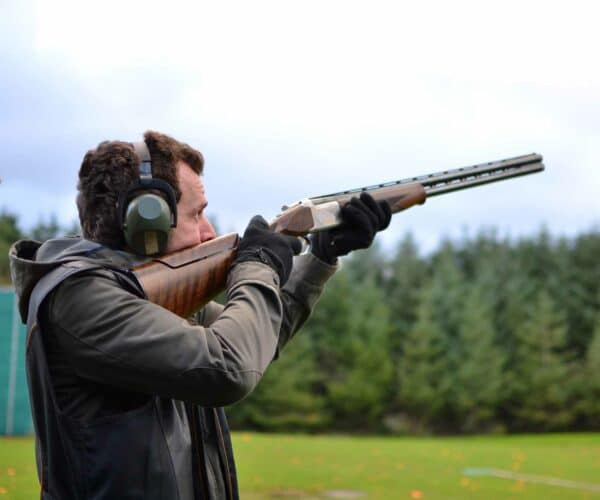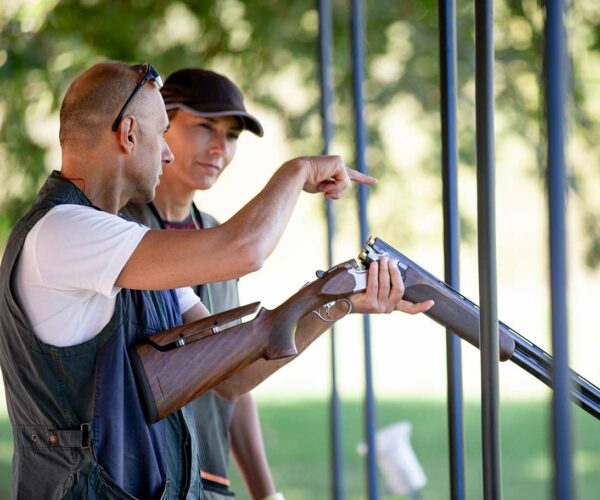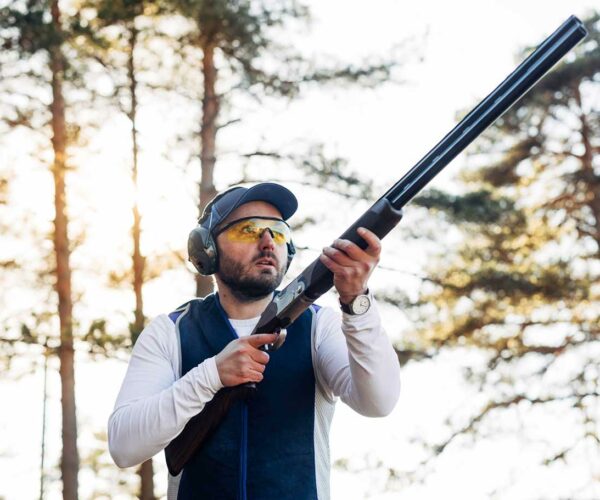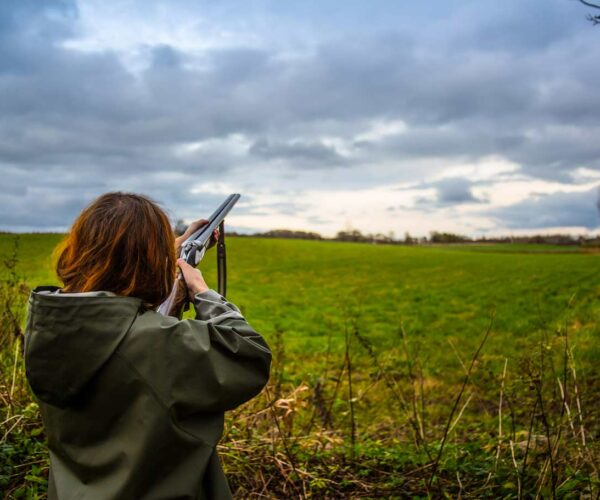Shooting sports have long been a popular pursuit in the UK, from clay pigeon shooting to game hunting. Whether you’re a seasoned regular or a newcomer curious about the sport, shooting is a skilful and precise sport. However, this interest comes with a significant responsibility. The UK has some of the strictest firearm laws in the world, and understanding the legal framework surrounding shotgun ownership is not just important – it’s essential.
Legal compliance isn’t just about following the rules; it’s about ensuring safety for yourself and those around you. Misunderstanding or disregarding these laws can lead to serious consequences, including fines, imprisonment, and the loss of your shotgun licence. By familiarising yourself with the requirements and regulations, you can enjoy shooting sports responsibly and legally, contributing to the safe continuation of this sport.
In this blog, we’ll break down everything you need to know about owning a shotgun in the UK, from obtaining a license to understanding where and how you can legally use your firearm.
Do you need a licence to own a shotgun in the UK?

The UK has strict regulations in place to ensure that only responsible individuals are granted the right to own and use a shotgun. Let’s break down what you need to know.
Licensing Requirement
Owning a shotgun is regulated by law to ensure public safety. To legally own a shotgun, you must obtain a Shotgun Certificate (SGC). This certificate is your official permission from the police to possess and use a shotgun. Without it, you cannot legally own, purchase, or use a shotgun. The Shotgun Certificate is specific to shotguns and differs from other firearm licenses, which may be required for different types of firearms.
The law is clear: no certificate, no shotgun. This is non-negotiable, and attempting to bypass this requirement can lead to serious legal consequences, including hefty fines and potential imprisonment.
Application Process
Applying for a Shotgun Certificate is a thorough process designed to ensure that only those who are fit and proper are granted the ability to own a shotgun. Here’s what you can expect:
Application Form
You’ll need to complete an application form, which can be obtained from your local police force or downloaded online. This form will ask for detailed personal information, including your medical history, mental health, and reasons for wanting to own a shotgun.
Background Checks
The police will conduct extensive background checks. They’ll look into your criminal record, if any, and assess your overall suitability for holding a shotgun certificate. This is to ensure that you do not pose a risk to public safety.
References
You’ll need to provide references from individuals who can vouch for your character. These should be people who have known you for a significant period, and they must be of good standing in the community.
Interview
An interview with a police officer is typically part of the process. During this interview, you’ll be asked about your intended use of the shotgun and your understanding of the responsibilities that come with ownership.
Home Visit
Expect a home visit from the police to inspect the security arrangements where the shotgun will be stored. The law requires that shotguns be stored securely in an approved gun cabinet, which must be anchored to a wall and kept out of reach of unauthorised persons.
After all these steps, the police will make a decision. If everything checks out, you’ll be issued a Shotgun Certificate, usually valid for five years, after which it must be renewed.
Eligibility Criteria
Not everyone can get a Shotgun Certificate. The law sets out specific criteria that must be met:
Age
You must be at least 18 years old to apply for a Shotgun Certificate. However, those under 18 can still use a shotgun under supervision in certain circumstances, but they cannot own one.
Criminal Record
A clean criminal record is essential. While minor convictions might not disqualify you, serious offenses, especially those involving violence or firearms, will almost certainly prevent you from obtaining a certificate. The police have the discretion to deny applications based on the nature of past convictions.
Mental Health
Your mental health is a significant consideration. The police will assess whether you have any history of mental illness or other conditions that could make you a risk to yourself or others if granted a Shotgun Certificate. Your GP may be contacted as part of this assessment.
Good Reason
While the law doesn’t require you to have a specific reason for owning a shotgun, you will be expected to demonstrate a legitimate use, such as for sporting purposes, pest control, or as part of a collection. The police will consider your stated reasons during the application process.
Can I use a shotgun without a licence?

Supervised Use
If you don’t have a Shotgun Certificate but want to try shooting, you can legally use a shotgun under direct supervision from a certificate holder. This means the licensed person must be present and able to take control of the shotgun if necessary, ensuring safety and compliance with the law. Supervised use is a common way for beginners to get started in shooting sports, allowing them to learn safely from an experienced individual.
Shooting Clubs and Events
For those new to shotguns, shooting clubs and events offer a great opportunity to experience the sport legally without needing a Shotgun Certificate. Registered clubs across the UK provide a controlled environment where beginners can shoot under the guidance of qualified instructors, often with shotguns available for temporary use. Events like clay pigeon shooting days are also ideal for beginners, offering a fun, supervised way to explore shooting within the bounds of the law.
If you’re a beginner looking to learn more about shooting, take a look at our blog on a Beginners guide to clay pigeon shooting.
What are the shotgun laws in the UK?

Overview of Legal Framework
The foundational legislation governing the possession, use, and ownership of firearms in the UK, including shotguns. This Act sets out the legal requirements for obtaining a Shotgun Certificate and the penalties for non-compliance.
Firearms (Amendment) Acts 1997
Amendments to the original Firearms Act that introduced stricter controls on firearm ownership following significant public incidents, including the ban on certain types of firearms and tighter regulations for shotguns.
Violent Crime Reduction Act 2006
Introduced additional measures to prevent the misuse of firearms, including stricter controls on the sale and transfer of firearms, and increased penalties for illegal possession.
Shotgun Definition
So, what defines a firearm as a shotgun as opposed to another type of gun?
Barrel Length
Under UK law, a shotgun must have a barrel length of at least 24 inches (610mm). This is a critical specification that differentiates a shotgun from other types of firearms.
Overall Length
The total length of the shotgun must be at least 40 inches (1016mm). This measurement includes the barrel and the stock.
Magazine Capacity
A shotgun is defined as having a magazine capacity of no more than two cartridges. If it can hold more, it is classified as a Section 1 firearm, which requires a Firearm Certificate rather than a Shotgun Certificate.
Smoothbore Requirement
The shotgun must have a smoothbore barrel. Rifled barrels, which impart spin to the projectile, fall under different legal categories.
Storage Requirements
Approved Gun Cabinets
Shotguns must be stored in an approved, lockable gun cabinet that meets British safety standards (BS 7558). The cabinet should be made of steel, securely bolted to a solid wall or floor, and located in a discreet area of the home.
Security Measures
The cabinet must have a lock that cannot be easily tampered with. Additionally, it’s recommended to use further security measures like alarms or CCTV to enhance protection.
Ammunition Storage
While it’s not a legal requirement, it is advisable to store shotgun ammunition separately from the shotgun itself, ideally in a locked container within the gun cabinet or in a different secure location.
Access Restrictions
Only the Shotgun Certificate holder should have access to the keys of the gun cabinet. It’s illegal to allow unauthorised persons access to the stored shotguns, ensuring that they are only used by those who are legally entitled to do so.
Where can you legally use a shotgun?

In the UK, you can legally use a shotgun on private land with the landowner’s permission, at registered shooting ranges, and at clay pigeon shooting clubs. These locations provide controlled environments where you can safely and legally enjoy shooting.
However, it’s crucial to be aware of restrictions: shotguns cannot be used in public places or near highways, where their use could pose a danger to others. Always ensure you’re in a legally permitted area and following all relevant safety guidelines to avoid serious legal consequences.
What are the penalties for violating shotgun laws?
Legal Consequences
Fines
Violating shotgun laws can result in significant fines, often depending on the severity of the offense. These fines are meant to act as a deterrent against careless or illegal behaviour.
Revocation of Shotgun Certificate
If you violate shotgun laws, your Shotgun Certificate can be revoked, meaning you will lose the legal right to own or use a shotgun. In some cases, you may also be barred from obtaining a certificate in the future.
Imprisonment
Serious breaches of shotgun laws, such as illegal possession or use, can lead to imprisonment. Sentences can vary but may be substantial for grave offenses.
Frequently Asked Questions on shotgun ownership
Transporting a Shotgun: How should a shotgun be transported legally?
When transporting a shotgun, it must be unloaded and securely stored in a gun slip or case. The shotgun should be out of sight, ideally in the locked boot of a vehicle. Ammunition should be kept separately, and both the shotgun and ammunition should be inaccessible to unauthorised persons. It’s also important to travel directly to and from your destination without unnecessary stops, to avoid potential legal issues.
Can I own more than one shotgun?
Yes, you can own more than one shotgun in the UK, but each shotgun must be recorded on your Shotgun Certificate. There’s no legal limit to the number of shotguns you can own, as long as you have adequate storage and meet all legal requirements. Each shotgun added to your collection must be reported to the police, and you must ensure that all are stored securely according to legal standards.
Can a shotgun be modified?
Shotguns can be modified, but there are strict regulations around what modifications are legal. For example, shortening the barrel to less than 24 inches or altering the overall length to less than 40 inches is illegal and could reclassify the shotgun as a prohibited weapon. Adding accessories like scopes or recoil pads is generally allowed, but any modification that changes the fundamental characteristics of the shotgun may require additional licensing or be outright illegal. Always consult the law or a firearms expert before making any modifications.
Can I lend my shotgun to someone else?
You can lend your shotgun to another person, but there are strict rules governing this. The person borrowing the shotgun must either have a valid Shotgun Certificate or use it under your direct supervision. If you lend your shotgun to someone without a certificate and they use it unsupervised, you could both be committing a criminal offense.
What happens if my Shotgun Certificate expires?
If your Shotgun Certificate expires, you are no longer legally allowed to possess your shotguns. You should apply for renewal well before the expiration date to avoid any legal issues. If your certificate lapses, you must surrender your shotguns to the police or a registered dealer until your certificate is renewed.
What should I do if my shotgun is lost or stolen?
If your shotgun is lost or stolen, you must report it to the police immediately. Failing to report a lost or stolen shotgun can result in severe penalties, including revocation of your Shotgun Certificate. Prompt reporting helps the authorities recover the firearm and prevents its misuse.
Do I need insurance to own a shotgun?
While not legally required, it’s highly recommended that shotgun owners obtain insurance, particularly if you plan to participate in shooting activities. Insurance can cover potential liabilities, such as accidental damage or injury caused during shooting. Many shooting clubs and organisations will require you to have insurance to participate.
Get Shooting Insurance with SportsCover Direct
If you’re willing to embrace the tips mentioned in this guide, then there’s no doubt that you take your sport seriously. And if you take it seriously, then you’ll need to make sure you’re taking all possible precautions, and that your investment into your guns and equipment is protected. This is why specialist shooting insurance is a must.
SportsCover Direct has been insuring shooters like you for around three decades. Whether you have an accident or injury; suffer loss, theft or damage to your guns and kit; or need public liability insurance to access shooting locations, our affordable cover is here to help. With flexible payment plans and premiums from just a few pounds a month, we can give you peace of mind and financial protection that doesn’t break the bank.
Take a closer look at the details of our shooting policy today.
This blog has been created as general information and should not be taken as advice. Make sure you have the correct level of insurance for your requirements and always review policy documentation.